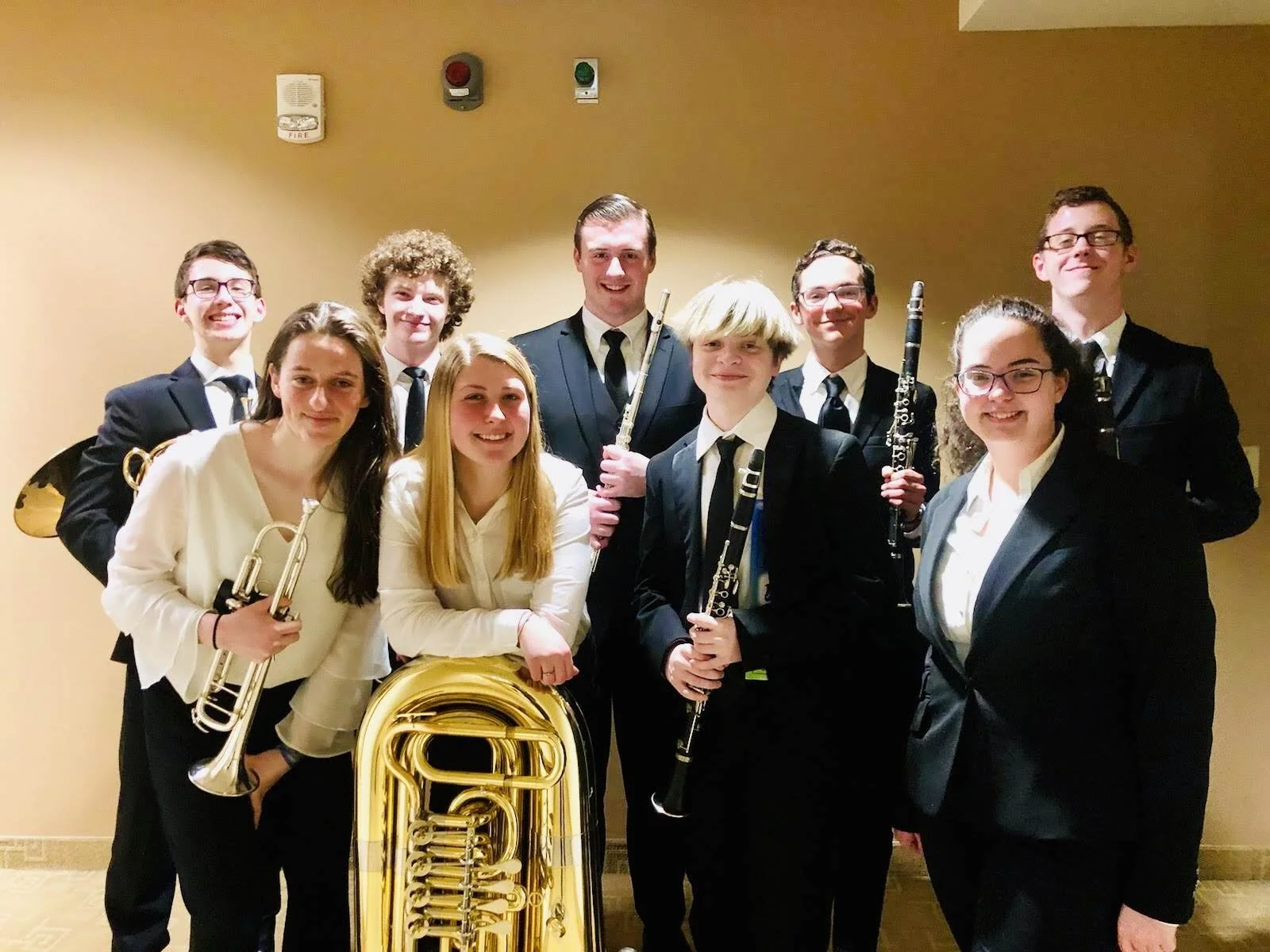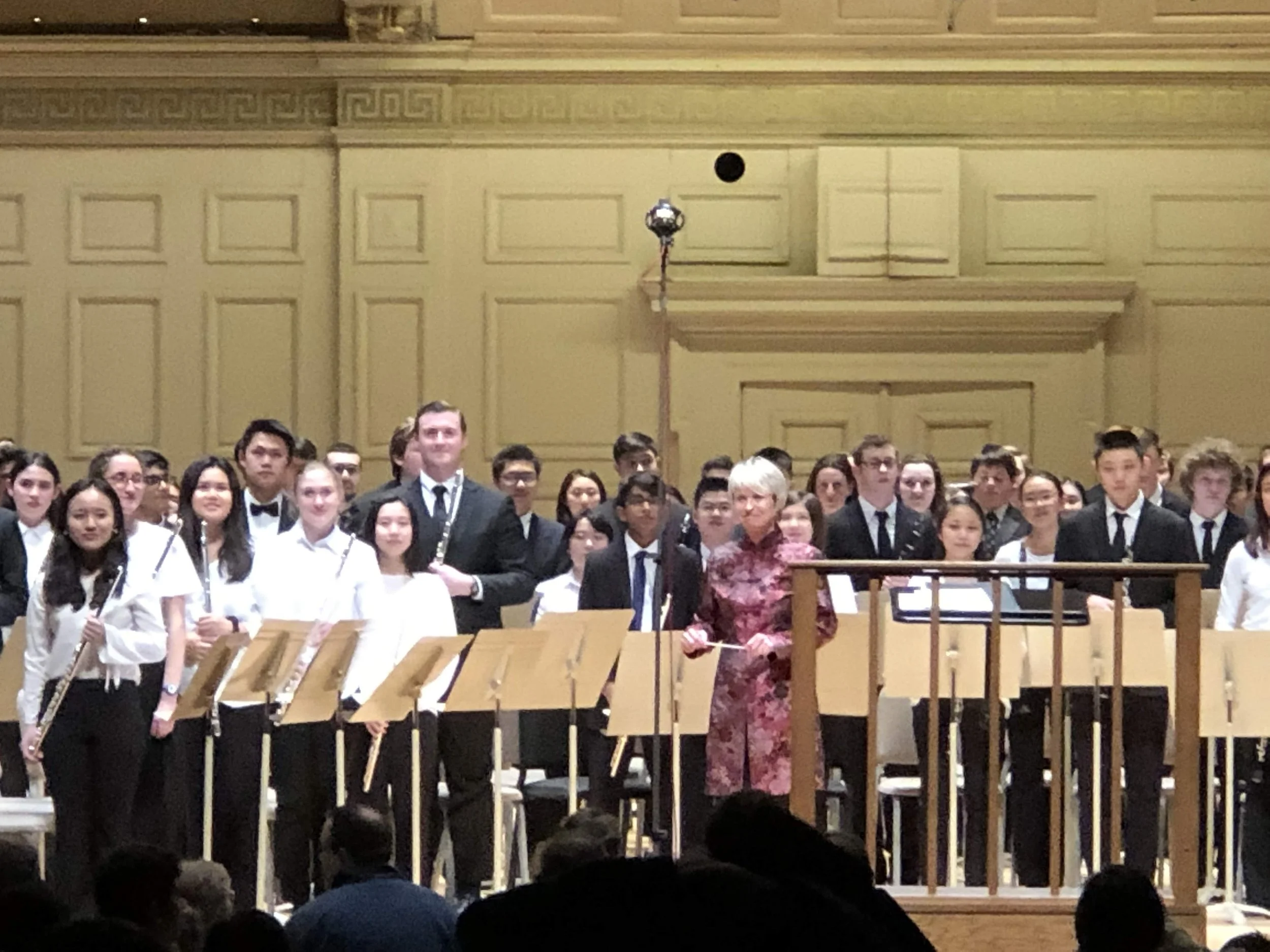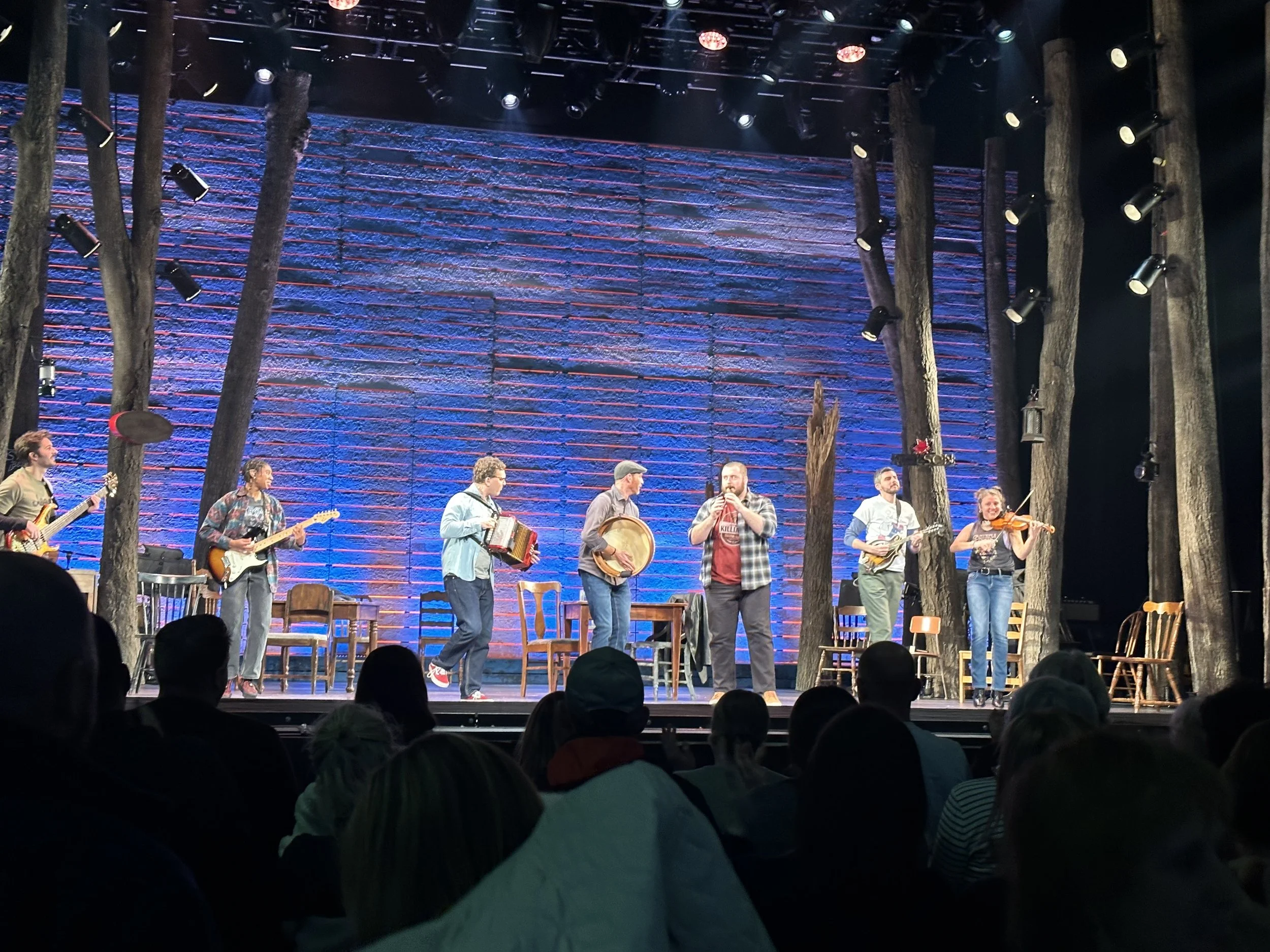Hi, I’m Logan, and this is my story
I began my journey in music at the age of seven taking Suzuki violin lessons. Within a couple years of playing, I made the switch to fiddling full-time, and I studied with my teacher, Sarah Michal, for ten years. Through her guidance and mentorship, she helped me find my voice as a fiddler, and her perspective helped shape my understanding of a variety of fiddling styles. The most important piece of advice she gave me was to share a story through my music, and to be myself.
Throughout my ten years under Sarah’s tutelage, I had the opportunity to compete in many fiddling competitions around New England- many of which I am grateful to share that I won. My exposure to and competition-readiness for Celtic, old-time, bluegrass, Klezmer, Cape Breton, and French-Canadian styles tested my versatility as a fiddler helped expand my overall musical vocabulary.
This video is a clip of my first ever performance in the “Trick and Fancy” division at the Blandford Fair Fiddle Contest in 2011, where crowd pleasing and engagement is a category on which all competitors are judged!
When I got to high school, I was one of three freshmen who was accepted into the Honors Wind Ensemble. I had the opportunity to play both flute and violin in my school’s music program, as well as take it to the next level and audition for the Western Massachusetts Senior Districts Festival and for the Massachusetts All-State Festival. It was during these formative audition experiences where my perspective on what I considered to be my primary instrument shifted, at the time. For my whole musical life until I was sixteen, I had always considered the violin and fiddling to be my primary form of musical expression. Although it wasn’t my focus, I did learn some classical repertoire with my fiddling instructor (who was classically trained). However, after doing a double audition for flute and violin for Senior Districts in my sophomore year, I was surprised to see that I scored much higher within the flute auditions compared to my violin audition. I had only ever done these festivals on classical violin, and although my preference that year was still for violin, I told myself that I would pursue a flute chair in my following years. In my last two years of high school, I took flute auditions for Senior Districts and earned my chair as Principal Flute in the District Orchestra, with the highest score in the district in both years. I was also fortunate enough to help end my high school’s All-State drought by earning my place in the 2019 All-State Symphonic Band on First Flute, with being one of six students from my high school to be accepted into the conference that year. I also auditioned for and was accepted into the NEMFA All-New England Orchestra on Second Flute that same year, being one of two students from Massachusetts to be accepted into the festival.
I continued fiddling and competing when I chose to learn the flute to join the middle school band. Leading up to this moment, I had been racking my brain for years deciding on what wind instrument I wanted to learn (at least to start!). My school’s band program didn’t start until fifth grade, and I remember feeling so jealous of the students in the years ahead of me carrying around their instruments.
I initially wanted to play the oboe, but there weren’t any oboe instructors local to my school. My band director gave me the choice of taking home a flute or a clarinet, as he said they are the most similar to the oboe. I initially tried the clarinet and couldn’t make a sound to save my life, but I was instantly able to make a sound on the flute. It was then when my band director said that it wasn’t common for a brand new flute student to make a sound on the head joint right out of the gate, and through his recommendation I stuck with it. I continued to play the flute for fun, not knowing that it would become my livelihood.
I eventually enrolled at Berklee College of Music in Boston, MA, as a flute performance major. My Berklee education challenged me in a variety of ways, including adding jazz and contemporary theory to my vocabulary, playing in a variety of ensembles, and learning about so many facets of the music industry as a whole. One of the most interesting challenges unique to me was paving my own way as a classical flutist at Berklee. Most flutists, especially those who enroll as performance majors, pivot from their classical training to study jazz. Although I took plenty of courses and labs that were jazz and improvisation-centered, I didn’t want jazz to be my main focus. I felt I had so much else to learn as a classical musician. Ultimately, I am happy that I listened to my gut because it allowed me to discover session work and recording for film and TV. I found my niche at Berklee as being a go-to recording session flutist on campus for students and faculty alike. I played on hundreds of recorded projects for film scores, game scores, new compositions, and passion projects. I was accepted into the Scoring Sessions Program (SSP) and did recording sessions through the school as a work study position. I was also accepted into the Film Scoring Studio Orchestra, Berklee’s flagship ensemble, to play for advanced scoring students, and had the opportunity to play for Alan Silvestri when he directed the ensemble as a guest. I also maintained a reliable recording setup off campus to record even more projects remotely. Berklee helped me find a new love for session work, and I’m so thankful for all of the opportunities this has given me.
The 2019 Massachusetts All-State Band contained only 18 people from Western MA, and a handful of them were in the same regional youth symphony.
Standing for bows after our performance at All-State, with guest conductor Cynthia Johnston Turner.
It was also at Berklee where I resumed focus on Celtic music and picked up some Celtic flutes and whistles. Playing Irish Trad music allowed me to reconnect with that side of me that loves fiddling, while challenging myself to be able to pick up a different skillset altogether. I eventually worked up my chops to be able to play in Trad Sessions around campus and around Boston.
When I graduated, I received a rare opportunity to audition for a spot in the band for a touring Broadway musical, and I secured a spot playing Irish Flute, Whistles, and Uilleann Pipes for the North-American Tour of Come From Away. This show helped me develop a love for musical theatre, while helping me refine my Celtic chops further. While on the road, I continued to work on my Trad chops as well as my woodwind doubling chops on oboe and clarinet.
From competitive fiddling, to classical flute, to film scores, to Trad, to Broadway, my love and understanding of music remains unique to me. My sound, my interpretation, my performance practice- all of it is indicative of the vast array of experiences I had in forming my musical identity, and I’m so thankful to my family and friends who have helped me on this journey in discovering and cultivating it. I’m especially excited to see what else the future holds.
My Jordan Hall debut with the Berklee Contemporary Symphony. From left to right: Gret Price, piccolo; Dr. Wendy Rolfe; Shriya Bharadwaj, second flute; Logan Mitchell, principal flute
The Come From Away Band Screeching Out at the Scotiabank Centre in Halifax, Nova Scotia, Canada.




